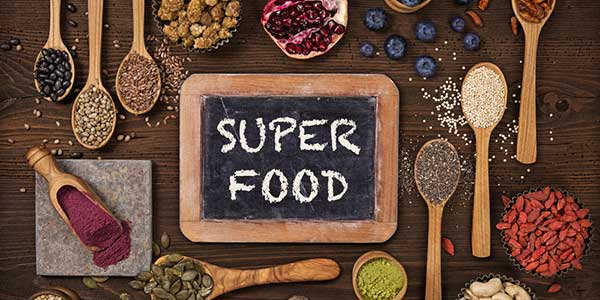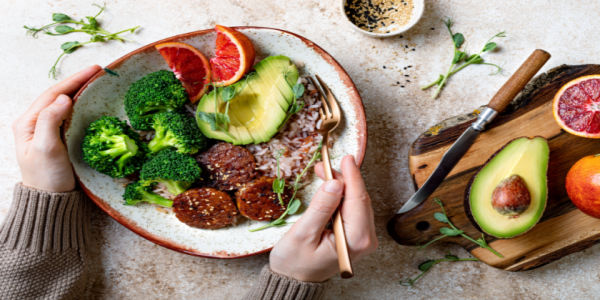
Though the exact and precise causes of various cancer forms are still yet to be confirmed, poor lifestyle choices are some of the greatest instigators. But with the emphasis of using food as medicine, researchers are better understanding and linking food groups and nutrients to particular cancer variations, including cancers of the lung, gastrointestinal tract, liver, sex organs, pancreas, bladder and kidneys.
Cancer Fighting Food
Lung Cancer
Although smoking cessation holds the greatest value in reducing lung cancer risk, dietary factors can may defend against it. Large research has highlighted beta-carotene offers the most protection against lung cancer, primarily found within dark yellow-orange and dark green produce. Fruits and veggies rich in vitamins C and E may also protect against lung cancer. Beneficial food sources of the identified micronutrients include:
1. Carrots
2. Green and Red Peppers
3. Kale
4. Spinach
5. Winter Squash
6. Peas
7. Tomatoes
8. Oranges
9. Peaches
10. Mangoes
11. Apricots
12. Kiwis
Gastrointestinal Cancers
Cancer can develop anywhere along the gastrointestinal (GI) tract, though colon cancer is the most common and cancers of the upper tract follow close behind. Large evidence has linked diet with these forms of cancers, including diets high in saturated fats, alcohol and pickled, salted, and smoked foods with low intakes of fiber and antioxidants from whole grains and fresh produce (including cruciferous veggies). Fiber has been suggested to coat the tract's lining while vitamins A and C and selenium are also touted to protect the digestive tract from cancer, food sources including:
13. Sweet Potatoes
14. Pumpkin
15. Cabbage
16. Brussels Sprouts
17. Broccoli
18. Garlic
19. Shallots
20. Onion
21. Chives
22. Brazil Nuts
23. Wheat
Liver Cancer
Liver cancer and diet has been suggestively linked to aflatoxins, a mold that may be produced on nuts, seeds, and grains. Additionally, high protein intake is suggested to accelerate tumor growth while lower levels may suppress it. Folate and vitamin B12 may inhibit liver cancer and can be found in these cancer-fighting foods:
24. Chickpeas
25. White Rice
26. Beans (including soy, black, red, and kidney beans)
27. Lentils
28. Cod
29. Salmon
30. Clams
31. Eggs
32. Yogurt
33. Chicken*
34. Beef*
35. Pork*
*Choose leaner products when selecting meats, including tenderloins, sirloins, and white meats.
Cancers of the Sex Organs
Much like cancers affecting the GI tract, high fat intake has also been suggested to promote both breast and prostate cancers. Saturated and other types of fats, besides fish supplying omega-3s, have shown the largest link of cancer to sex organs. Additionally, obesity has been suggested to raise the risk of endometrial cancer, though cervical cancer may be protectant by beta-carotene and selenium found in orange and green fruits and veggies and wheat, nuts, and seeds, respectively.
Pancreatic Cancer
Most current research suggests cigarette smoking is the only clear risk factor for developing cancer of the pancreas, though inconclusive links have also been related to high meat, coffee, and alcohol intakes. Additionally, tea has been suggested as a "safe" drink.
Kidney and Bladder Cancers
Obesity and smoking are the greatest risk factors for kidney and bladder cancer, respectively. Considering the lining of the bladder is formed by epithelial cells and vitamin C assists in cell integrity, the vitamin may be a protector against bladder cancer.







